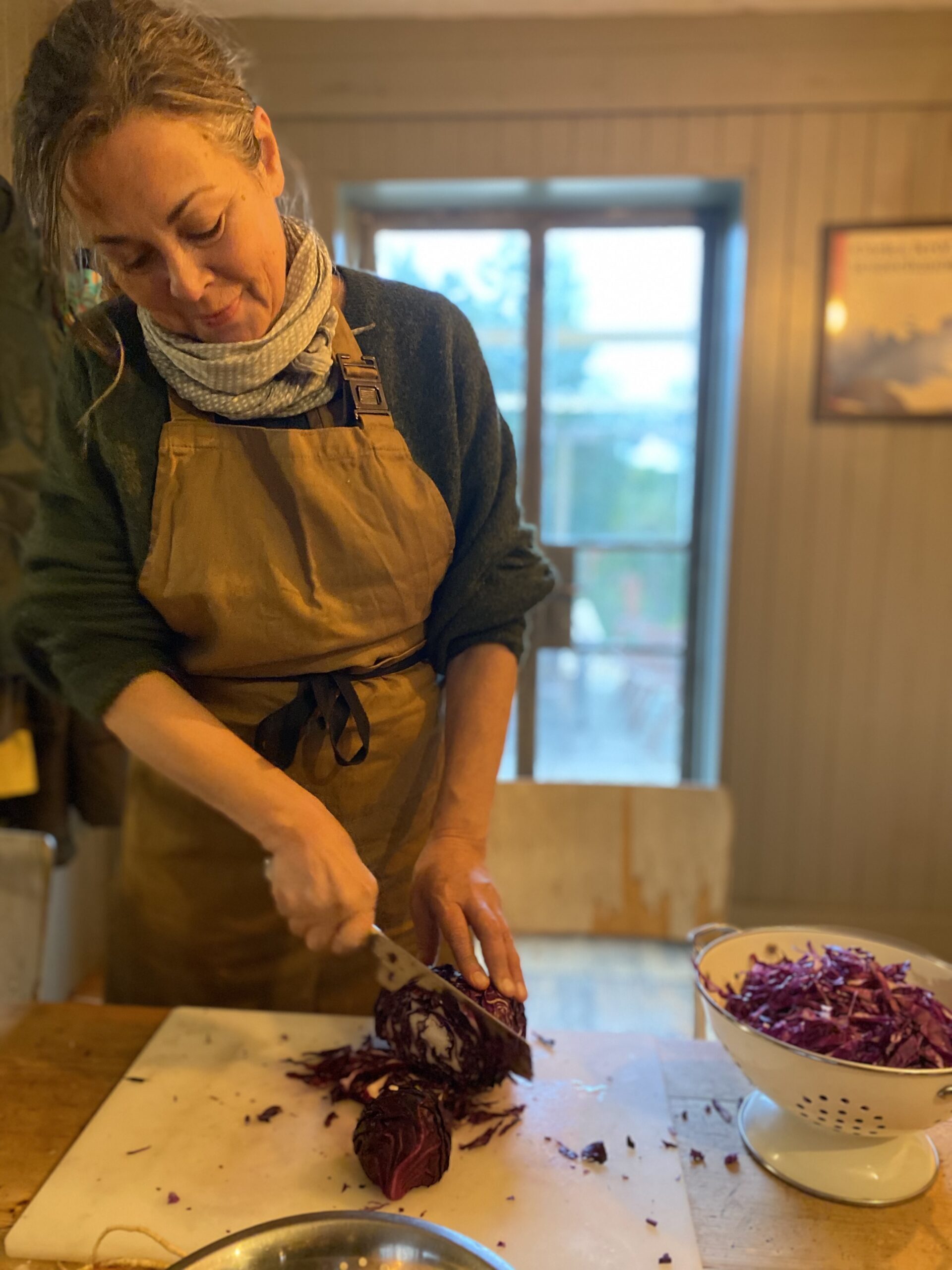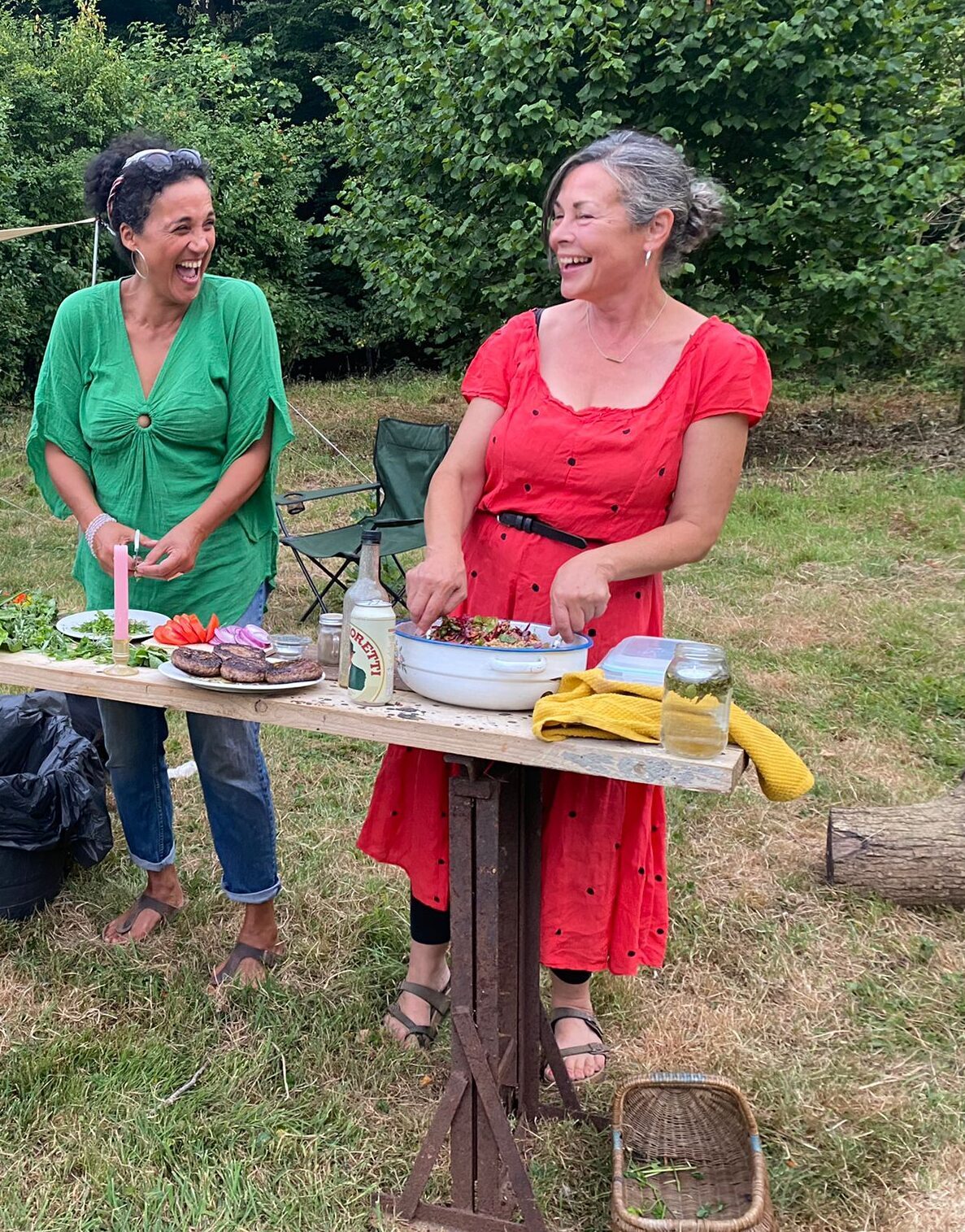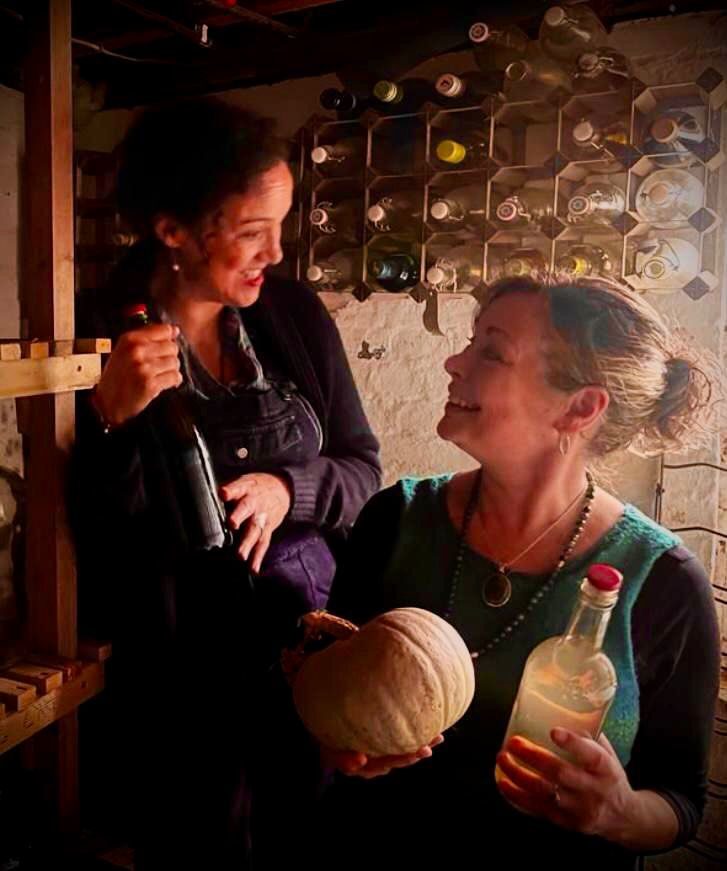Vicky
Vicky Radtke trained as an architect and when working on her thesis, spent time with the indigenous Naskapi people of Canada. This was a formative moment in life as she observed how the community lived and were adapting to the pressures of the so-called civilizing influences at the end of the twentieth century where the world-wide growth economy was reaching even the most far-flung places. The Naskapi people who were nomadic hunter-gatherers had been obliged to settle in bungalows provided by the government. Their bungalows had electricity and televisions and the young people were tantalised by adverts for trainers and beer and junk food which the weekly freight train brought to the sub-arctic outpost of Schefferville. Meanwhile their grandparents would hunt caribou and fish as they had always done and the skins would cure by open fires near the bungalows to be made into mukluk snow boots and items which were traditionally used for their once resilient way of life. The contrast between two ways of life and an incredibly short timeline in which that transition was made was stark and stayed with Vicky as an abiding influence.
Vicky worked as an architect in London and Brighton, spending some time working for the Construction Industry Training Board teaching architecture in schools and also co-founding Space Therapy in which she worked with clients to make their existing living and working spaces therapeutic, life enhancing and resilient to their changing needs and life events, thus enabling people to form longer relationships with their built environment and external surroundings and communities.
Meanwhile, Vicky and her husband, Dave, were bringing up four children whilst living in the Seven Dials neighbourhood of Brighton. Food and cooking had always been a shared interest of theirs and when a little international supermarket in the neighbourhood came up for lease in 1998 they made an almost overnight decision to take a break from their architectural careers and turn the building with its tall windows and high ceilings into a restaurant that would transform the neighbourhood and bring the community together. The café-bar-restaurant was called the Tin Drum; it was inspired by the café culture of eastern Europe and it was designed to be architecturally informal and yet striking; it was a showcase for local talent, featuring different artists and musicians every month. Food was sourced locally where possible and the restaurant was family friendly without pandering to the generation divide, so children’s food was just smaller portions of the main flavoursome and complex restaurant dishes. This was the first of four Tin Drum café-bar-restaurants that were to be a part of Brighton and Hove culture for fifteen years.
Vicky and family moved from house to house in Brighton ending up in a modernist eco-house which they designed and built themselves. A move to rural Sussex was not part of the plan but when a farmhouse in the village of Upper Dicker came on the market in 2008 they made the move from town to country and so began a very different chapter of life. The farmhouse was anything but modern and the credit crunch of that year was a transformative time for Vicky and a leap forward in learning about resilience, from the land and the community. Vicky and Dave set about growing food on their three-acre smallholding for their own family and the restaurants. They raised a few pigs and made charcuterie and worked with local smallholders to supply the best local meat, game and produce for the restaurants.
Vicky has always been interested in artisanal food and worldwide peasant culture and how people and communities adapt and survive in all parts of the world whatever the climates and challenges. By 2011 Vicky was selling her artisan charcuterie made to traditional European recipes in food markets across Sussex. She loved the warmth and vibrancy of the local food producing community and the people who came to market because of their love of food and respect for its source and quality.
st century whilst still retaining its historic charm. Guests would take their breakfast together round the old farmhouse table eating eggs from the homestead’s hens, homemade sourdough bread and homemade yoghurt made from local raw milk and compote made from fruit from the kitchen garden. All the complimentary toiletries in the guests’ bathrooms were hand-made by Vicky using essential oils in refillable bottles. Guest could book evening meals at the farmhouse and Vicky loved to cook for them using whatever was fresh in the garden or hedgerows on the day. The meal would be accompanied by homemade wild wine.
The homestead is at the heart of Vicky’s way of life which over time was transformed by learning from nature and ancient peasant skills in order to live carefully from the land to create a rich and diverse way of life with family and community at its heart.
In November 2019 Vicky co-founded the Green Onion Collective with Tanja Gangar and Jennifer Moore to bring together people with a common purpose within the community to pool ideas, resources, expertise as well as support and wisdom and promote a resilient and joyful way of living in changing modern times.


